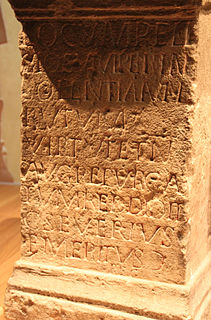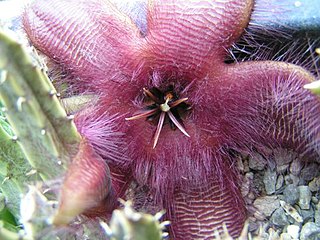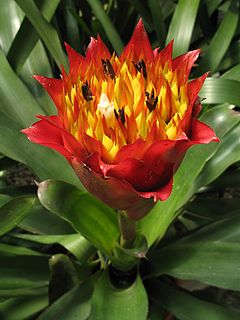 W
WThe proper name Arab or Arabian has been used to translate several different but similar-sounding words in ancient and classical texts which do not necessarily have the same meaning or origin. The etymology of the term is closely linked to that of the place name Arabia.
 W
WAryan is a term which was originally used as a self-designation by Indo-Iranian peoples in ancient times, in contrast to "non-Indo-Aryan" or "non-Iranian" peoples. The idea of being an Aryan was religious, cultural and linguistic, not racial. Although the root *h₂er(y)ós is most likely of Proto-Indo-European (PIE) origin, the use of Arya as an ethno-cultural self-designation is only attested to among Indo-Iranian peoples, and it is not known if PIE speakers had a term to designate themselves as a group.
 W
WAutumn, also known as fall in North American English, is one of the four temperate seasons. Outside the tropics, autumn marks the transition from summer to winter, in September or March, when the duration of daylight becomes noticeably shorter and the temperature cools considerably. Day length decreases and night length increases as the season progresses, until the Winter Solstice in December and June. One of its main features in temperate climates is the shedding of leaves from deciduous trees.
 W
W"The Big Apple" is a nickname for New York City. It was first popularized in the 1920s by John J. Fitz Gerald, a sports writer for the New York Morning Telegraph. Its popularity since the 1970s is due in part to a promotional campaign by the New York tourist authorities.
 W
WBorealism is a form of exoticism in which stereotypes are imposed on the Earth's northern regions and cultures.
 W
WCaralho is a vulgar Portuguese-language word with a variety of meanings and uses. Literally, it is a noun referring to the penis, similar to English dick, but it is also used as an interjection expressing surprise, admiration, or dismay in both negative and positive senses in the same way as fuck in English. Caralho is also used in the intensifiers para caralho, placed after adjectives and sometimes adverbs and nouns to mean "very much" or "lots of", and do caralho, both of which are equivalent to the English vulgarities fucking and as fuck.
 W
WDagga is a word used in certain areas of Southern Africa to describe cannabis. The term, dating to the 1660s, derives from the word dacha in the Khoekhoe language used to describe the drug as well as various species of Leonotis. The leaves of specifically the Leonotis leonurus resemble the cannabis leaf and is known locally as wild dagga. The word has been spelled many different ways over time as various groups of people began using the term and some examples of these are: daggha, dacha, dacka, dagha, tagga, dachka, daga. According to the Oxford Dictionary, dagga was also used by the Khoekhoe to describe the sensation of intoxication.
 W
W*Dyḗus, also *Dyḗus ph2tḗr, is the reconstructed name of the daylight-sky god in Proto-Indo-European mythology. *Dyēus was the bright sky of the day conceived as a divine entity and as the seat of the gods, the *deywṓs. Associated with the vast diurnal sky and with the fertile rains, *Dyēus was often paired with *Dhéǵhōm, the Earth Mother, in a relationship of union and contrast.
 W
W*Fraujaz or *Frauwaz, feminine *Frawjōn is a Common Germanic honorific meaning "lord", "lady", especially of deities.
 W
W*Frijjō ("Frigg-Frija") is the reconstructed name or epithet of a hypothetical Common Germanic love goddess, the most prominent female member of the *Ansiwiz (gods), and often identified as the spouse of the chief god, *Wōdanaz (Woden-Odin).
 W
WFuck is a profane English-language word which often refers to the act of sexual intercourse but is also commonly used as an intensifier or to denote disdain. While its origin is obscure, it is usually considered to be first attested to around 1475. In modern usage, the term fuck and its derivatives can be used as a noun, a verb, an adjective, an interjection or an adverb. There are many common phrases that employ the word as well as compounds that incorporate it, such as motherfucker, fuckwit, fuckup, fucknut and fuck off.
 W
WGanja is a Hindi name for hemp, derived from the word ganjha, from the Sanskrit gañjā, referring to a "powerful preparation from cannabis sativa". The term ganja, one of the oldest and most commonly used synonyms for marijuana in the English language, dates to before 1689.
 W
WThe English word god continues the Old English god, which is derived from Proto-Germanic *ǥuđán.
 W
WA hieroglyph was a character of the ancient Egyptian writing system. Logographic scripts that are pictographic in form in a way reminiscent of ancient Egyptian are also sometimes called "hieroglyphs". In Neoplatonism, especially during the Renaissance, a "hieroglyph" was an artistic representation of an esoteric idea, which Neoplatonists believed actual Egyptian hieroglyphs to be. The word hieroglyphics refers to a hieroglyphic script.
 W
WThe origin of the word jazz is one of the most sought-after word origins in modern American English. Interest in the word – the American Dialect Society named it the Word of the Twentieth Century in 2000 – has resulted in considerable research and the linguistic history is well documented. "Jazz" began as a West-Coast slang term around 1912. The meaning varied, but the word did not initially refer to music. "Jazz" came to mean "jazz music" in Chicago around 1915.
 W
WThe Kilkenny cats are a fabled pair of cats from County Kilkenny in Ireland, who fought each other so ferociously that only their tails remained at the end of the battle. Often the absurd implication is that they have eaten each other. "P. M'Teague" (1840). Dickens, Charles; Ainsworth, William Harrison; Smith, Albert (eds.). "Watty Flaherty; Chapter I". Bentley's Miscellany. London: Richard Bentley. VII: 391–404: 395. Retrieved 8 November 2019. A Kilkenny cat!" exclaimed Mr. O'Dowd. "Why they eat one another up! </ref> In the nineteenth century the Kilkenny cats were a common simile for any conflict likely to ruin both combatants. Kilkenny cat is also used more generally for a fierce fighter or quarrelsome person. These senses are now rather dated. In the later twentieth century the motif was reclaimed by Kilkenny people as a positive symbol of tenacity and fighting spirit, and "the Cats" is the county nickname for the Kilkenny hurling team. The original story is attested from 1807 as a simple joke or Irish bull; some early versions are set elsewhere than Kilkenny. Nevertheless, theories have been offered seeking a historical basis for the story's setting.
 W
WMarijuana, or marihuana, is a name for the cannabis plant and more specifically a drug preparation from it. "Marijuana" as a term varies in usage, definition and legal application around the world. Some jurisdictions define "marijuana" as the whole cannabis plant or any part of it, while others refer to "marijuana" as a portion of the cannabis plant that contains high levels of tetrahydrocannabinol (THC). Some jurisdictions recognize "marijuana" as a distinctive strain of cannabis, the other being hemp. The form "marihuana" is first attested in Mexican Spanish; it then spread to other varieties of Spanish and to English, French, and other languages.
 W
WThe word orange is both a noun and an adjective in the English language. In both cases, it refers primarily to the orange fruit and the color orange, but has many other derivative meanings.
 W
WPussy is a noun, an adjective, and in rare uses a verb in the English language. It has several meanings, including use as slang, as euphemism, and as vulgarity. Common meanings of the noun include "cat", as well as "coward or weakling", and "the human vulva or vagina", or as a synecdoche, "sexual intercourse with a woman". Because of its multiple senses including both innocent and vulgar connotations, "pussy" is often the subject of double entendre.
 W
WThe Latin term religiō, origin of the modern lexeme religion is of ultimately obscure etymology. It is recorded beginning in the 1st century BC, i.e. in Classical Latin at the beginning of the Roman Empire, notably by Cicero, in the sense of "scrupulous or strict observance of the traditional cultus". In classic antiquity, meant conscientiousness, sense of right, moral obligation, or duty towards anything and was used mostly in secular or mundane contexts.
 W
WSince the first printing of Carl Linnaeus's Species Plantarum in 1753, plant species have been assigned one epithet (name) for the species and one for their genus. These scientific names have been catalogued in a variety of works, including Stearn's Dictionary of Plant Names for Gardeners. William Stearn (1911–2001) was one of the pre-eminent British botanists of the 20th century: a Librarian of the Royal Horticultural Society, a president of the Linnean Society and the original drafter of the International Code of Nomenclature for Cultivated Plants.
 W
WSince the first printing of Carl Linnaeus's Species Plantarum in 1753, plant species have been assigned one epithet (name) for the species and one for their genus. These scientific names have been catalogued in a variety of works, including Stearn's Dictionary of Plant Names for Gardeners. William Stearn (1911–2001) was one of the pre-eminent British botanists of the 20th century: a Librarian of the Royal Horticultural Society, a president of the Linnean Society and the original drafter of the International Code of Nomenclature for Cultivated Plants.
 W
WSince the first printing of Carl Linnaeus's Species Plantarum in 1753, related plant species have been grouped according to genus. Many genera have been catalogued in a variety of works, including Stearn's Dictionary of Plant Names for Gardeners. William Stearn (1911–2001) was one of the pre-eminent British botanists of the 20th century: a Librarian of the Royal Horticultural Society, a president of the Linnean Society and the original drafter of the International Code of Nomenclature for Cultivated Plants.
 W
WSince the first printing of Carl Linnaeus's Species Plantarum in 1753, related plant species have been grouped according to genus. Many genera have been catalogued in a variety of works, including Stearn's Dictionary of Plant Names for Gardeners. William Stearn (1911–2001) was one of the pre-eminent British botanists of the 20th century: a Librarian of the Royal Horticultural Society, a president of the Linnean Society and the original drafter of the International Code of Nomenclature for Cultivated Plants.
 W
WSince the first printing of Carl Linnaeus's Species Plantarum in 1753, related plant species have been grouped according to genus. Many genera have been catalogued in a variety of works, including Stearn's Dictionary of Plant Names for Gardeners. William Stearn (1911–2001) was one of the pre-eminent British botanists of the 20th century: a Librarian of the Royal Horticultural Society, a president of the Linnean Society and the original drafter of the International Code of Nomenclature for Cultivated Plants.
 W
WSince the first printing of Carl Linnaeus's Species Plantarum in 1753, related plant species have been grouped according to genus. Many genera have been catalogued in a variety of works, including Stearn's Dictionary of Plant Names for Gardeners. William Stearn (1911–2001) was one of the pre-eminent British botanists of the 20th century: a Librarian of the Royal Horticultural Society, a president of the Linnean Society and the original drafter of the International Code of Nomenclature for Cultivated Plants.
 W
WThe word witch derives from the Old English nouns wicca Old English pronunciation: [ˈwittʃɑ] and wicce Old English pronunciation: [ˈwittʃe]. The word's further origins in Proto-Germanic and Proto-Indo-European are unclear.